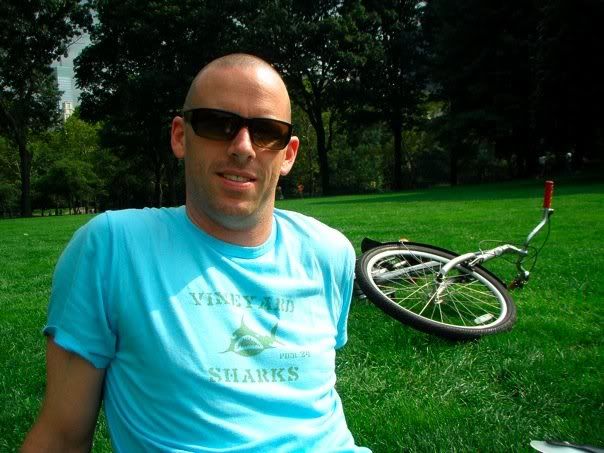If you take the time and have a read, I think you will agree that Vince brings up a very good point about our expectations versus our willingness to be a part of the solution.
This seems like a pretty easy way to "donate" in a time when ca$h donations are a little tough for a lot of people.
Please consider re-posting this on your own blog if you are so inclined, and make your donation commitment.
Here's mine: Race season is not a great time to donate so I will wait till racing wraps up for 2009... By Hallowe'en 2009 I will have donated.
___________________________________
Blood Donation
At school, I work in the Life Science Institute at UBC, sharing the 4th floor with me is the Center for Blood Research. As a consequence of this domestic arrangement, we often are invited to talks put on by the CBR. The allure to these talks is typically the free wraps and pizza, however, once in a while you get a very interesting talk which makes you think.
Typically the talks are research based, however, a few weeks ago we had a talk by Dr. Dana Devine on the past, present and future of the Canadian Blood Services.
What I learned from this talk.
In Canada there are roughly 33,654,000 people. Of those, there are something like 12 million eligible donors. How many do? Somewhere in the range of 600 000. That works out to only 5% of eligible donors, and even those are not donating to their full potential.
Some more fun statistics. If there was a world crisis and we ran out of needles to extract blood. The reserves would last only 4 days! Ok, that doesn't mean all blood would be gone that fast, AB positive would last weeks, but the O negative would be gone almost instantly. There is a major shortage.
Another interesting factoid. When asked, 78% of Canadians agree that there is a blood shortage, however, when that same population was asked if ever they were in an accident, would they expect to get blood, 84% said they would.
That math doesn't work out. Somehow we assume that we are important enough to get the blood, but not donate.
Yikes, this is quite the guilt trip here. You would think I donate all the time. However, my shame is now being exposed. How often have I donated. Sadly,
ZERO!
I'm terrified of needles, and pass out any time I have to give blood. Most blood test I've taken however, have had to be on an empty stomach. Low blood sugar is supposed to make you lightheaded when giving blood, so I think that with some juice boxes in hand I should be able to do it.
With that statement, I'm declaring that I will by the end of 2009 give blood! I will wait until the end of race season (Sometime in September unless I do another marathon), and then will take my 2 weeks recovery and then donate.
As it stands today that would mean I am going to donate by the 27th of September. YIKES!
With a little research done, I discovered that there are alternatives for people as wimpy as me. Whole blood is hard on the system. Leaves you feeling drained. However, you can also donate platelets, and plasma. When you donate plasma they even supplement you so you don't get a low blood pressure reaction.
So I think I will start with one of these before taking the plunge.
For more information on the types of donations, check this page out.
But just a recap of what is says.
Whole Blood donation every 9 weeks
Platelet donation every 14 days
And can donate plasma every 6 days,
And Finally, I know there are going to be some of you telling me, I can't donate blood, I've been blocked by Canadian Blood Services. I lived in the UK, or I've been to Africa in the last 90 days. Well, today is your lucky day. Its true, you cannot donate for blood transfusions, HOWEVER, you can donate for research purposes. There are hundreds of diseases which require more blood research. And to do that they need blood samples. And surprise surprise, there is a shortage there as well. Many labs have their friends come in and donate so they can do their work.

Donating for research purposes is not as easy, for that you need to contact your local Canadian Blood Services and find out the location of a clinic. They are usually near Universities. Dr Dana Devine is the person to contact if you wish to locate you local clinic.
To contact Dana, send an e-mail to dana.devine@blood.ca
Now that I've declared it to the Interweb, I guess there is no backing down now.
I encourage you to copy this post and put it on your blogs. Try and get as many people out there.

 Tweet this!
Tweet this!






.jpg)



































































